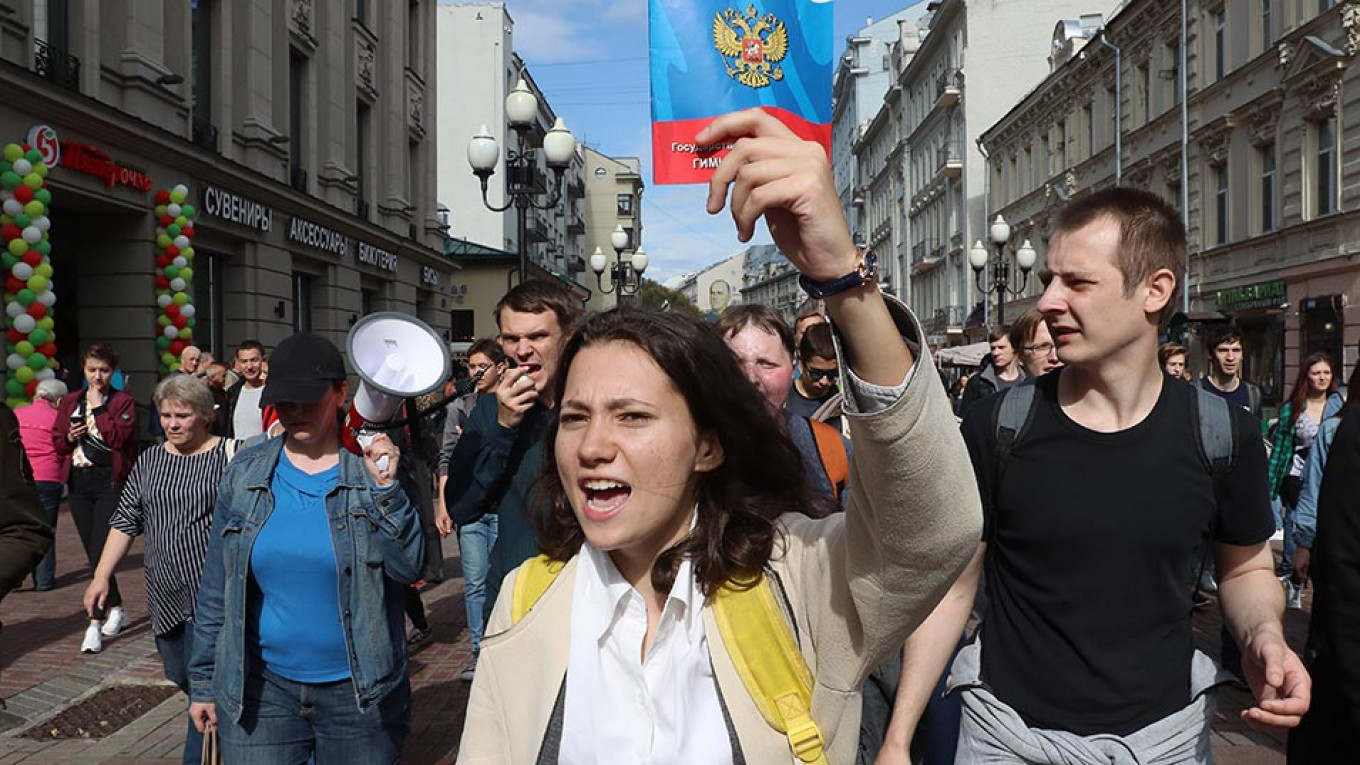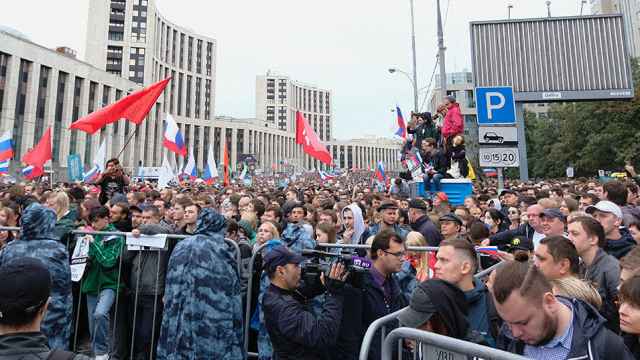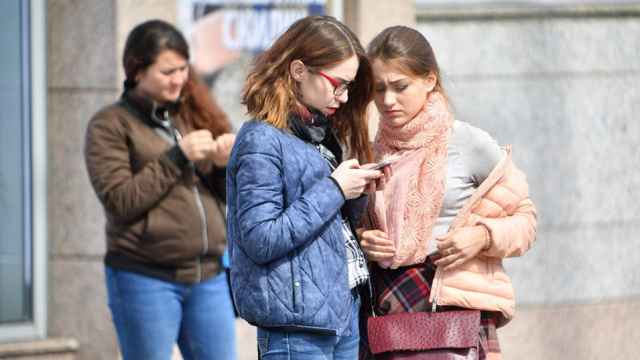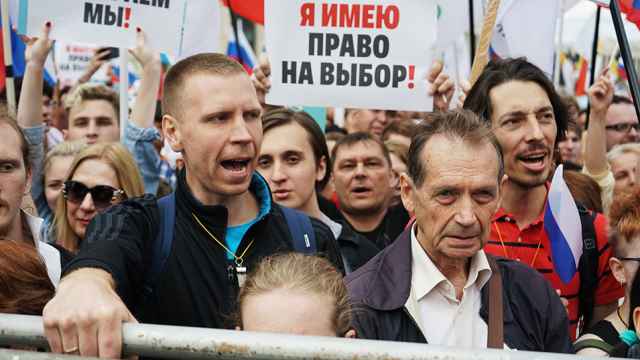Russia has sentenced a prominent young activist to over two years of home confinement on vandalism charges amid the country’s widening crackdown on dissent, the Mediazona news website reported Tuesday.
Olga Misik, 19, became a symbol of Russia’s pro-democracy movement after she read the Constitution to a line of armored riot officers at a July 2019 protest against the barring of allies of Kremlin critic Alexei Navalny from Moscow city council elections.
She and two friends were charged with vandalizing a government building after they hung a banner in support of political prisoners and splashed red paint on a security booth outside the Prosecutor General’s Office building in August 2020.
Under the verdict, Misik will be banned from leaving her home between 10:00 p.m. and 6:00 a.m. for two years and two months.
Prosecutors had requested a sentence of two years of “restricted liberty” for Misik.
Her friends and fellow defendants Ivan Vorobyevsky and Igor Basharimov have been sentenced to one year and nine months of “restricted liberty” with a curfew from 11:00 p.m. to 5:00 a.m.
Prosecutors sought one year and 10 months for Vorobyevsky and Basharimov.
Prosecutors said their act caused 3,500 rubles ($47) in damages, while the defense maintains that the paint was water-soluble and no damage was done to the property.
In an impassioned final statement to the court last month that has been shared widely on Russian social media, the Moscow State University student refused to deny her act of protest, as “I'd rather be insane in your eyes than helpless in mine.”
She also said she was “never afraid” during her years of arrests and intimidation, which included being detained for an October 2019 one-person picket on Red Square and organizing a demonstration in Penza in February 2020.
“People often ask me if I am scared,” Misik said. “Often people outside Russia don’t get the reality of life in Russia. They don’t understand the knock on the door in the middle of the night, the arrests and imprisonment without reason or cause.”
"I was never afraid," she said. "I felt despair, helplessness, hopelessness, confusion, anxiety, despair, anger, but neither politics nor activism every infected me with the feeling of fear."
For many in Russia's opposition, Misik came to symbolize a new generation of Russians who are silenced by a repressive regime.
“I am not promising victory tomorrow, the day after, in a year, or 10. But someday we will win, because love and youth always win,” Misik said.
She closed her statement by comparing her case to that of Sophie Scholl, the German student who was executed by the Nazi regime for handing out anti-war leaflets.
“She was condemned for leaflets and graffiti, while I have been tried for posters and paint,” she said. “Essentially, we were both persecuted for thought crimes. My trial has been very similar to Sophie's trial and today's Russia is very similar to fascist Germany. Even facing the guillotine, Sophie did not abandon her convictions and her example has inspired me not to seek a deal. Sophie Scholl is the embodiment of youth, sincerity and liberty. And I really hope that I am like her in this way.”
Misik’s sentencing comes amid what activists call a widening clampdown by Russian authorities on the opposition, including recent expansions to the country’s “foreign agents” law and an anticipated ruling to ban Navalny’s activist and political groups as “extremists.”
A Message from The Moscow Times:
Dear readers,
We are facing unprecedented challenges. Russia's Prosecutor General's Office has designated The Moscow Times as an "undesirable" organization, criminalizing our work and putting our staff at risk of prosecution. This follows our earlier unjust labeling as a "foreign agent."
These actions are direct attempts to silence independent journalism in Russia. The authorities claim our work "discredits the decisions of the Russian leadership." We see things differently: we strive to provide accurate, unbiased reporting on Russia.
We, the journalists of The Moscow Times, refuse to be silenced. But to continue our work, we need your help.
Your support, no matter how small, makes a world of difference. If you can, please support us monthly starting from just $2. It's quick to set up, and every contribution makes a significant impact.
By supporting The Moscow Times, you're defending open, independent journalism in the face of repression. Thank you for standing with us.
Remind me later.






